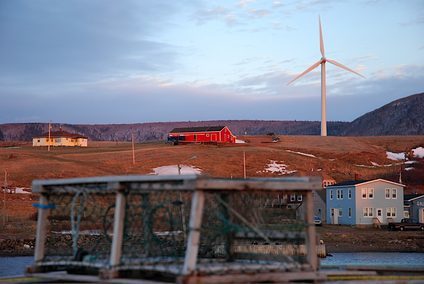
For immediate release: August 23, 2021
Media Contacts:
Gretchen Fitzgerald, Sierra Club Canada Foundation, 1-902-444-7096 / gretchenf@sierraclub.ca
John Davis, Clean Ocean Action Committee, 1-902-499-4421 / jbdavis@eco-nova.com
Marilyn Keddy, Campaign to Protect Offshore Nova Scotia, 1-902-634-4057 / mfkeddy30@gmail.com
Offshore Alliance Calls on All Parties to Commit to No Further Fossil Fuel Development, Will Report on Candidates’ Answers
(K’jpuktuk/ Halifax, NS) -- On August 9th the Intergovernmental Panel on Climate Change (IPCC) released its Sixth Assessment Report calling for immediate, rapid, and large-scale reductions in greenhouse gas emissions. In May of this year the International Energy Agency said no new oil and gas fields should be developed in order to reach net zero by 2050.
In light of these international reports, and the commitments from all federal parties to address the climate emergency, the Offshore Alliance is calling on all federal candidates in this election to commit to formally ending offshore exploration and drilling and subsidies that support these activities. The Alliance has sent questions to all federal candidates and plans to make the responses public.
“This is a measure of the sincerity of a party’s pledge to address the climate emergency,” says Gretchen Fitzgerald, Director, Sierra Club Canada Foundation. “It will be a challenge to reduce our emissions, but further offshore oil and gas development will make it impossible.”
Although no oil and gas exploration or drilling is taking place right now in Nova Scotian waters, the provincial and federal governments continue to fund and foster offshore oil and gas development. The provincial government is a “mega sponsor” of an oil and gas conference in Morocco in 2022, the purpose of which is to better understand potential oil bearing formations off Canada’s East Coast.
The fishing industry has led the way in protecting ocean areas from offshore drilling and seismic blasting, including the first moratorium on oil and gas drilling on Georges Bank, beginning in 1986. The current moratorium on Georges Bank expires on December 31, 2022, and the provincial and federal government have yet to extend that moratorium and protect the valuable Georges Bank fishing grounds.
“The extension of the Georges Bank moratorium should be a no-brainer,” states John Davis of the Clean Ocean Action Committee representing over 9000 fishery owners, operators and workers. ”And with our planet experiencing catastrophic fires and flooding, it is time to protect all of Nova Scotian ocean waters by extending the moratorium on Georges Bank, and formally ending exploration in other parts of Nova Scotia’s oceans. The world needs the high quality protein energy our oceans can provide, we do not need more hydrocarbons to burn. We have a responsibility to future generations.’
“Ending oil and gas exploration and extraction in favour of major job creation in renewable development and energy efficiency is not a fringe idea – international scientists, economists, and 85% of people in Nova Scotia support it,” says Marilyn Keddy of the Campaign to Protect Offshore Nova Scotia “Members of the Offshore Alliance recently commissioned a poll that shows 4 out of 5 people in Nova Scotia support a huge move away from fossil fuels. If parties want people to take them seriously, they need to meet the public where we’re at, and start putting forward real climate action plans that include winding down the fossil fuel industry.”
####
The Offshore Alliance is a consortium of 18 fisheries groups and environmental NGOs concerned about the wellbeing of our fishery and tourism industries, environment, and healthy coastal communities in the face of offshore oil and gas development off Nova Scotia. Our group has been in discussion with many Nova Scotian municipal units on this critically important issue. Twelve Nova Scotia towns and municipalities have now called on our provincial and federal governments to hold a full public inquiry on the risks and impacts of offshore oil and gas exploration and extraction so that fully informed and rational decisions can be made.
